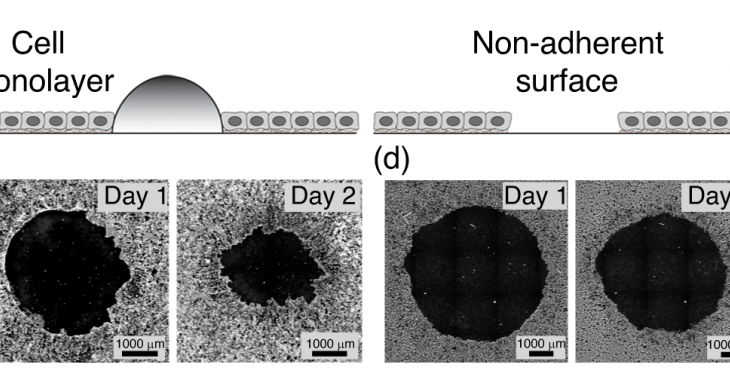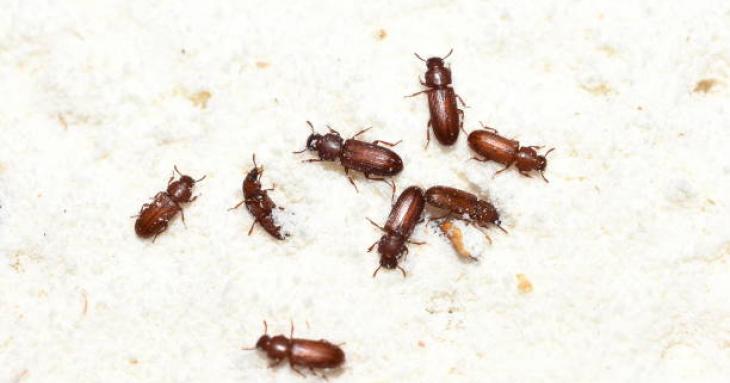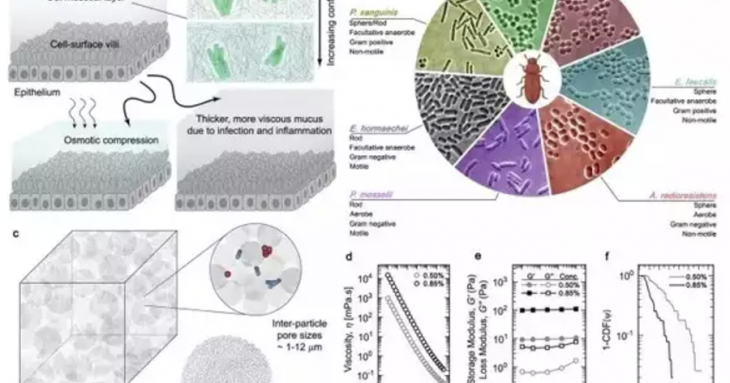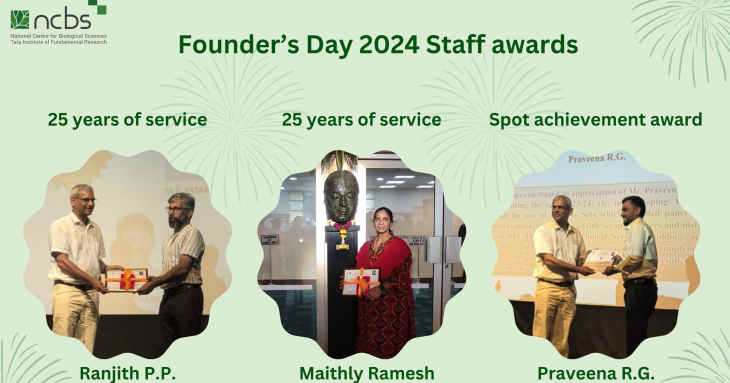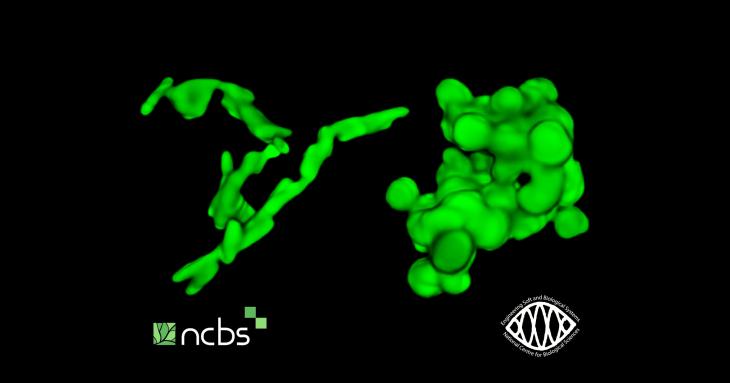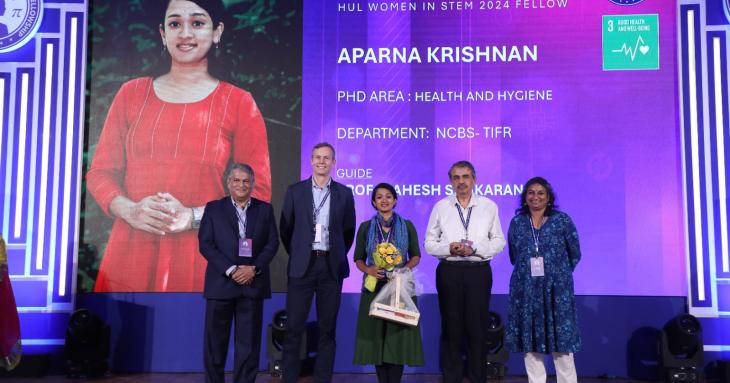-
Geometry and Mechanics of Wounded Tissue Determine Healing Outcomes
Scientists have long been fascinated by how tissues heal, and much of this research has focused on the ep
-
Professor Vatsala Thirumalai is the recipient of the 2024 Devi Award by The New Indian Express Group.
Dr Vatsala Thirumalai, Professor at the National Centre for Biological Sciences, Bengaluru is the recipient of the 2024 Devi Award by the New Indian Express Group,
-
What Beetles Can Teach Us About Population Growth
In the twentieth century, improvements in public health infrastructure and medic
-
NCBS Staff Shine at Founders’ Day 2024
It has been raining awards for NCBS at the Founders’ Day Awards 2024, hosted on October 30 every year in TIFR M
-
Shape Rules Bacterial Growth in 3D
More than 300 years ago, Leeuwenhoek peered down his handmade lenses, and made mankind’s first-ever observ
-
NCBS Students win Hindustan Unilever Limited Women in STEM Fellowship
Aparna Krishnan (Professor Mahesh Sankaran's Lab) and Disha Kshirsagar (Dr Sabarinathan Radhakrishnan Lab), graduate students at the National Centre for Biological Sciences, Bengaluru have been selected this y


